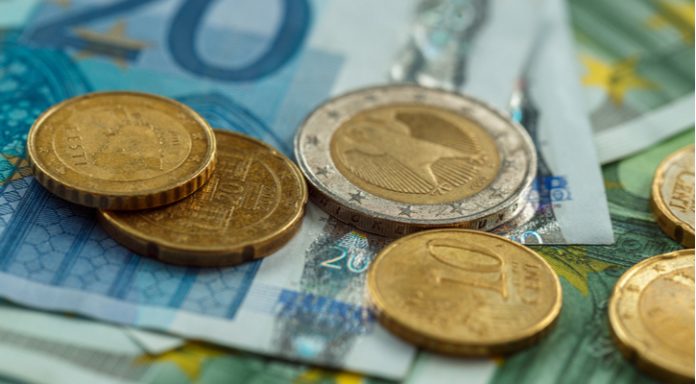Both the euro and the pound traded broadly lower against their peers on Tuesday. Against each other the pound euro exchange rate traded within a tight range hitting a high of €1.1365 amd a low of €1.1336.
| What do these figures mean? |
|---|
When measuring the value of a pair of currencies, one set equals 1 unit and the other shows the current equivalent. As the market moves, the amount will vary from minute to minute. For example, it could be written: 1 GBP = 1.13990 EUR Here, £1 is equivalent to approximately €1.14. This specifically measures the pound’s worth against the euro. If the euro amount increases in this pairing, it’s positive for the pound. Or, if you were looking at it the other way around: 1 EUR = 0.87271 GBP In this example, €1 is equivalent to approximately £0.87. This measures the euro’s worth versus the British pound. If the sterling number gets larger, it’s good news for the euro. |
The pound was under pressure in the previous session as investors reacted negatively comments by the new Bank of England (BoE) rate setter Jonathan Haskell. August will be the last session for known hawk Ian McCafferty who will hand over to a more cautious sounding Jonathan Haskell. In a speech on Tuesday, Mr Haskel agreed with the BoE that rates would probably need to rise, but he also focused on the persistently weak growth and potentially more slack in the UK labour market. Investors judged his tone to be more dovish than his predecessors Ian McCafferty, with his lack of urgency for a rate rise sending the pound lower.
| Why do raised interest rates boost a currency’s value? |
|---|
| Interest rates are key to understanding exchange rate movements. Those who have large sums of money to invest want the highest return on their investments. Higher interest rate environments tend to offer higher yields. So, if the interest rate or at least the interest rate expectation of a country is relatively higher compared to another, then it attracts more foreign capital investment. Large corporations and investors need local currency to invest. More local currency used then boosts the demand of that currency, pushing the value higher. |
Ian McCafferty will vote in the August meeting which will be his last. Given that Mr Haskal in more dovish, there are growing concerns that if the central bank doesn’t hike in August then the next opportunity could be some way off.
Once again, the UK economic calendar is rather bare. Attention will firmly be on BoE Governor Mark Carney as he speaks about the financial stability report.
Migrant Crisis Rocks German Coalition
The euro was out of favour in the previous session as problems continue to mount up against German Chancellor Angela Merkel. Domestically, the German leader faces a ferocious row within her coalition over the migration crisis in Europe which threatens to blow up the German government less than three months after it was formed. On a broader front , the political shift in Europe is not supportive of Merkel and Italy for example, lead by the far right struggles to find much common ground with the German Chancellor on the growing European migrant crisis.
Should Angela Merkel fail to appease her coalition government there is a good chance that the EU Summit on Thursday will be her last. Theses political concerns are causing investors to sell out of the euro.
| How does political risk have impact on a currency? |
|---|
| Political risk drags on the confidence of consumers and businesses alike, which means both corporations and regular households are then less inclined to spend money. The drop in spending, in turn, slows the economy. Foreign investors prefer to invest their money in politically stable countries as well as those with strong economies. Signs that a country is politically or economically less stable will result in foreign investors pulling their money out of the country. This means selling out of the local currency, which then increases its supply and, in turn, devalues the money. |
| —– |
|
This publication is provided for general information purposes only and is not intended to cover every aspect of the topics with which it deals. It is not intended to amount to advice on which you should rely. You must obtain professional or specialist advice before taking, or refraining from, any action on the basis of the content in this publication. The information in this publication does not constitute legal, tax or other professional advice from TransferWise Inc., Currency Live or its affiliates. Prior results do not guarantee a similar outcome. We make no representations, warranties or guarantees, whether express or implied, that the content in the publication is accurate, complete or up to date. Consult our risk warning page for more details.
This article was initially published on TransferWise.com from the same author. The content at Currency Live is the sole opinion of the authors and in no way reflects the views of TransferWise Inc.





